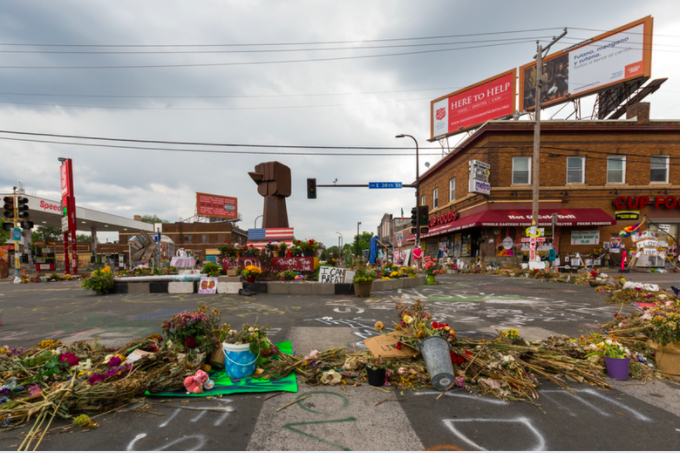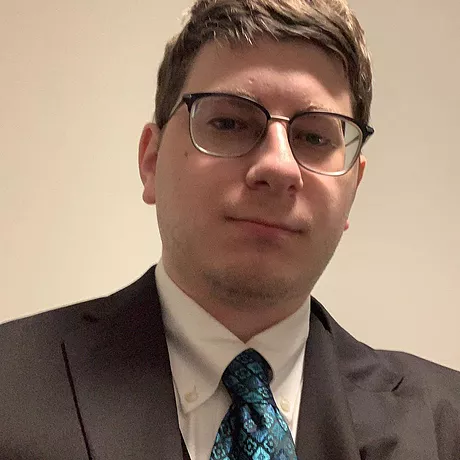
In the Shadow of the Chauvin Verdict
On April 21, 2021, Derek Chauvin, a former Minneapolis police officer, was found guilty by a jury of all three charges in causing the death of George Floyd. The reaction to the verdict that emerged from this contentious trial was varied. Some celebrated the verdict, while others were more circumspect and thought that it was the sustained unrest, peaceful or otherwise, that got them to this point. Indeed, in the aftermath of the verdict, there were calls that such demonstrations continue in other cases of alleged misconduct against the black American community and that they should be sustained until certain structural reforms, like defunding the police, are enacted. There are, however, questions that arise as to whether the public outrage unduly affected the thinking of the jury in this case and whether the rule of law in America could be sustained in the face of this pressure. The central controversy of this whole trial was about whether an erosion of due process occurred and what this portends for the future. In other words, the idea of "innocent until proven guilty" has been the ideological foundation of the judicial system since its inception. Regardless of Chauvin's guilt or lack thereof, the public reaction to the trial threatens to undermine judicial independence and risks creating a society that defines its legal justice by the feelings and desires of the masses.
The venue of the trial as set in Minneapolis, the scene of George Floyd’s death, is an issue at play in whether due process was afforded to Chauvin. Minneapolis was not spared from the protests and riots that occurred over the summer that were sparked by his tragic death. The trauma of the rioting was not lost on one alternate juror who commented that at the onset of the trial, she did not want to relive that whole experience again and was concerned that a mob would show up at her home if they were unhappy with the verdict.
This revelation raised questions on whether these feelings persisted throughout the trial for her, as well as for the other members of the jury. In other words, did the fear of violent consequences cloud their deliberations? This fear was magnified by the fact that days before the deliberations on the verdict, the city again combusted into rioting over the death of Daunte Wright by a policewoman. Furthermore, it should be noted that at least one of member of the jury lived in the neighborhood where Wright was shot while other members had connections to that neighborhood.
The behavior of the media and politicians during the trial itself presented another issue. The judge of the trial sternly reproached the media for trying to read the notes of the defense and prosecution as well as for their “completely irresponsible” posting of details of the security where the trial was taking place. There was also a mismatch between what was revealed in court versus how the media narrated the event of Floyd’s death. While the factor of race was brought up time and again in the media’s narrative of events, the topic of race never arose during the court proceedings itself. Within the context of the court, no evidence of Chauvin having a racial animus toward blacks was given nor was the point even argued to the ire of some outside observers. Indeed, when the Attorney General of Minnesota, Keith Ellison, was asked by the press why he did not charge Chauvin with a hate crime, Ellison replied, “If we’d had a witness that told us that Derek Chauvin made a racial reference, we might have charged him with a hate crime…We didn't have … [a witness].”
In addition to the press’s narrative of this being a racial crime, there was no shortage of politicians chiming in on what the verdict should be. One notable case was Congresswoman Maxine Waters, in the aftermath of the Wright shooting, demanding that the protesters stay in the streets and get more confrontational if the jury does not deliver a guilty verdict on charges against Chauvin. This particular incident provoked the judge to state that comments like that disrespected the rule of law and the function and independence of the judicial branch. The judge went further and told the defence that Waters’ comments may be grounds to overturn the trial on appeal.
Yet, this plea for politicians to not comment on the righteousness of one side during an ongoing trial seemed to fall on deaf ears. At a press conference, the Mayor of Minneapolis, Jacob Frey exclaimed, “Regardless of the decision made by the jury, there is one true reality, which is that George Floyd was killed at the hands of the police.” President Joe Biden from the Oval Office informed the public after the jury was sequestered that he was praying that the jury would reach the right verdict in the face of what he deemed to be overwhelming evidence.
Other problems in this trial included vandals leaving a pig’s head at the former residence of a use-of-force expert for the defense and that early on two jurors were dismissed due to their reactions to the news of a record $27 million settlement between the city of Minneapolis and the family of Floyd. In the latter case, the judge commented that he wished that the “city officials would stop talking about this case so much.” All of these factors from overt or latent fears over continued violence, undue political influence, the media’s sensationalism of this case, and the untimely releases of prejudicial information, call into question just how independent a jury can be in the face of such concentrated public pressure to convict. The short duration of the jury’s deliberations only heightens this concern.
Such things do not bode well for the health of the rule of law in the United States, especially in politically charged cases. The media has clearly endorsed a cause here and has constructed a narrative surrounding it, while glossing over the violence committed in this cause’s name with the phrase “mostly peaceful protests” as well as even providing a platform to those who defend the use of looting as legitimate tactic. Other institutional forces, such as public health officials, that should remain neutral in such matters, have also given these protests their stamp of approval in the name of social justice, while disapproving of anti-lockdown protests. Politicians have latched onto this narrative in order to advance their own pet projects and their careers.
Ultimately, the message here is that so long as certain forces agree with a cause, they can spin a narrative even when it stands at odds with what was argued in a court of law. In the face of such overwhelming public pressure that is set, prior to, during, and after a trial, calls into question if a dispassionate verdict can be achieved, given the politically charged nature of the proceedings. Irrespective of Chauvin’s guilt or innocence, this tactic has now been shown to be successful and what is rewarded tends to be replicated. The effect of this imbalance in how things are covered, in turn, risks the foundation of impartial and blind justice. It remains to be seen just how the judicial system can deal with these challenges.
